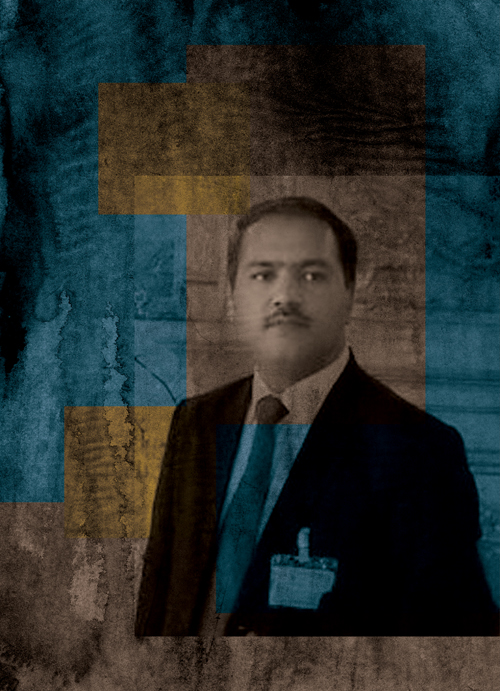Ahmad Shah Behzad is a Member of Parliament from Herat province. He was forced to migrate to Iran during the war and stayed there until the fall of the Taliban. Upon his return to Afghanistan with his family, he started working as a journalist for Radio Azadi [Radio Free Afghanistan]. Subsequently, he was elected to the parliament and became deputy speaker. Behzad is presently studying for a Law degree.
Have your rights ever been violated?
The first major rights violations I experienced were connected to my migration to Iran. Kids my age went to school, but I wasn’t allowed to study because I didn’t have residence papers. Rather than going to school with the other children my age, I had to work illegally in awful conditions – in humid, underground workshops.
What are some important achievements in Afghanistan since the time of the Taliban?
One of them is the different styles of living. The people found the opportunity of moving towards a safe future. The whole system of politics has changed. Previously, political groups used war and violence to achieve their goals. Such a costly method of politics: the price was human lives and dignity. Power was seized through secret, underground activities. Now, elections rather than the battlefield are the gateway to political power.
Other achievements include reconstruction and the establishment of better welfare facilities, and the implementation of some development projects to meet people’s needs.
What gives you hope for the future?
Open minds are the key to a safe, sustainable future. The young generation, rushing at opportunities for education, are the ones who give me hope. Their minds are open, and thanks to the large number of academic institutions which have been established in the last decade, they have access to education.
What is your worst fear today?
My greatest fear is that we might see a return to power by the Taliban and other reactionary groups. Right now, with the attention of the world focused on Afghanistan, this isn’t possible. But it could be a risk if the Afghan government severs its ties with the outside world and places itself in a position of isolation.
What are some of the major challenges facing Afghanistan?
There are some groups in Afghanistan who are trying to present the old tribal relations as the way forward. Sometimes this manifests itself in violent action. Neighbours and other countries that benefited from the past three decades of instability in Afghanistan are playing the same game.
We face other challenges on the level of cultural, ethnic, and religious divisions. For example, in the past, religion was intertwined with tribal relations, and often mixed up with violent, religious-ethnic fundamentalism. These dangerous attitudes have become embedded in cultural relations and religious teachings, and continue to play out in society. We need to correct these problems at their source.
Would today’s Afghanistan allow schools to once again be closed to girls and women excluded from social participation?
I don’t think so, but there are some people who think it could be possible. Since the fall of the Taliban, many different styles of living have emerged in Afghanistan. You cannot seek to impose one single way of life on an entire population.
What are some key factors which deter women’s participation in social, economic, political and cultural spheres?
One is the misogynist interpretations of religious teachings and the rejection of women’s rights by some religious leaders. There is also a shortage of well-educated people to lead public debate and progress. I would like to add another factor: the persistence of primitive ways of living and attitudes in the rural areas, and the power of repugnant customs and traditions in society.
What are the major demands of women?
There is a need for the development of humane and non-discriminatory attitudes to replace the exclusivist mindset of the old society. Secondly, there is the issue of leadership in the government, societal administrators, and policymakers that needs to be reformed. Finally, there is a need to modernize religious teachings. They must be interpreted in a way that is humane and inclusive of women.
Which resources and institutions in society can women rely on?
There are some Members of Parliament who advocate for women’s rights. Some media houses effectively report on violations of women’s rights and promote their respect and protection. Safe houses are also an important resource for female victims of violence.
What do you wish for your daughter?
My wish is that she will achieve her wishes and not face the same fate of other girls in our country, who lack the freedom to choose their partner and make decisions about work and education.
What have you done in your private and professional life to fight against discrimination?
Most of the professional roles I have held helped, directly or indirectly, to eliminate and reduce discrimination. For example, I did a lot of work in relation to the Personal Status Law for Shi’ite Muslims in Afghanistan [concerning family law]. I have also worked on the Media Code, the Law for the Elimination of Violence Against Women, and others. In my private life, I treat my daughters and sons equally.
“Unveiling Afghanistan, the Unheard Voices of Progress” is a campaign by Armanshahr and FIDH, which explores views held by Afghan civil society actors. Over 50 days, 50 influential social, political, and cultural actors hope to spark conversation and debate about building a society that is inclusive of women’s and human rights in Afghanistan.
Follow 50 interviews drawn from the “Unveiling Afghanistan campaign” daily on the Huffington Post.
Follow Unveiling Afghanistan on FIDH Twitter: www.twitter.com/fidh_en


